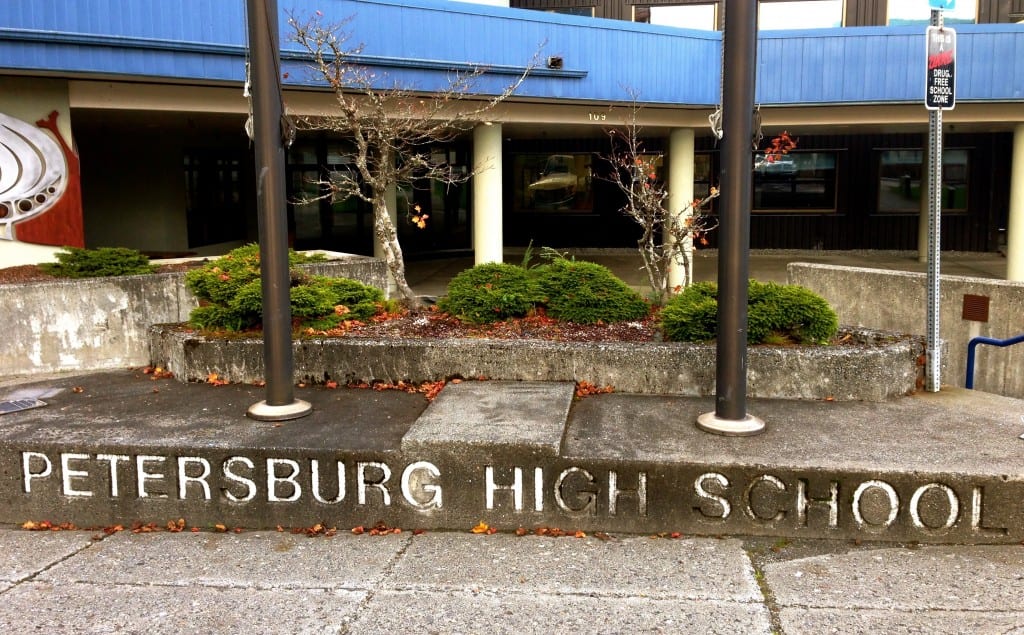
Petersburg teachers and school district administrators say they’re doing the best they can with COVID limitations this year after frustrations were expressed by some students at a recent school board meeting. The students disliked the current class schedule but, as Angela Denning reports, administrators say it’s the best solution for the pandemic right now.
The class schedule at the high school changed this year to accommodate smaller class pods. Students stay with the same teachers and other students to help prevent coronavirus spread if cases were to pop up. Instead of seven classes a day there are only four. It includes a few 85-minute classes each day called blocks.
High School Principal Rick Dormer said that the block schedules have been a good solution given the circumstances. He said some teachers and students actually prefer them but the current schedule won’t stick.
“When we get out of COVID craziness the block schedule will not be the preferred schedule for Petersburg High School,” said Dormer.
Dormer was speaking at a recent work session of the school board.
The blocks last only a semester instead of a full year. For some classes the extra time is often beneficial like in science labs and other hands-on classes. However, it also concentrates the material, like in math, and can be hard for some students to keep up.
Although grades haven’t dropped for most students, some say they are having to work harder.
In a recent survey of high schoolers, 44 percent said they are doing more homework this year than last year, 35 percent said it’s about the same, and 20 percent said they are doing less.
School Board member, Meg Litster, said she’s heard from several families on the issue.
“They’re just having to work a lot harder, which isn’t a bad thing, I mean, kids should be challenged, obviously,” Litster said. “My concern was just, we don’t want that to reach a breaking point for the student or for the teacher.”
No one is blaming the teachers who are working extra hours themselves, often creating multiple lessons for the same material, for teaching in-person as well as online. Math teacher Tommy Thompson said the block schedule does require him to go through content quickly but he said the students have risen to the challenge.
“I think the kids have just done an absolute incredible job as far as doing the work and I hate to say it but no one’s always happy in a math class,” Thompson said.
Science teacher Alice Cumps says that she feels lucky that the school has mostly in-person learning unlike many other schools in the state. She said her students have been adjusting to the new schedule this year. Her biggest challenge has been figuring out how to teach science when it’s online.
“We are adapting, we are doing the best that we can do,” said Cumps. “We had to really quickly change how we teach science; I would say we’re still trying to figure that out.”
School Board President Sarah Holmgrain said even though the data shows that student grades are about the same this year, the school year has not been the same. She said there have been many challenges for everyone.
“It might be the same percentages this year as it is in any given year but I think their stress levels are just so much higher this year so then it becomes more pronounced,” said Holmgrain. “I think that’s what we’re really looking at.”
On the student survey, 36 percent of students said they wanted more in-person tutoring and 36 percent said they wanted more online support. A large majority of students—about 74 percent—said they knew teachers were available after school to help them but they didn’t stay for the help. Dormer said this is an area they want to improve. He said part of the problem is that the school started off in a modified medium risk status and then moved to green after a month.
“To be fair to students we’re in a spot here where we’ve been telling students not to stay,” said Dormer. “You know, we’re trying not to have groups and it’s not as welcoming environment and it’s not because we don’t want it to be but just because what we’re living through.”
School board member, Katie Holmlund said communications need to improve and that the message hasn’t been clear to students about getting extra help.
“Some of these frustrations that students are having are coming down to the communication and that part that I’m hearing is really frustrating to me,” said Holmlund. “Kids being encouraged or kind of shewed out the door quickly. You know, when we were in yellow–I understand–but now you’re trying to get them back on board with this idea. It feels to me right now that it was not clear from the get-go and so I think that it kind of snow-balled.”
Thompson said since the school went to a green status with every day, in-person learning, he and other teachers are getting students staying after school every day. He said the real challenge could come next year when students have had a semester off of some subjects because the blocks are not year-long. He said continued support and communication will be key going forward.
“We talk about all the stress that everybody’s under and yet we have it so good here in Petersburg in so many ways,” Thompson said. “We’ve got such a supportive community, such a supportive administration, teachers are really dedicated from the youngest kids all the way up. We’re really lucky to have all the things we have but I think that it’s that communication piece that’s really important.”
46 percent of high school students surveyed said they preferred the four-class-a-day schedule and 40 percent said they liked seven classes better, like last year.
The school plans to re-survey students before Christmas break to stay on top of their needs and concerns.
As for teachers, board members expressed concern about their stress level this year. Superintendent Erica Kludt-Painter said district administration will be monitoring for the possibility of burn-out among all the staff.
“I think we are wanting to monitor that for all staff because even when things are going really well, and things do go really well because we do have this incredibly dedicated group of people and we have kids who step up every day and we have families who support us. . . but it’s wearing,” said Kludt-Painter. “It’s this constant, you know, what’s next?”











